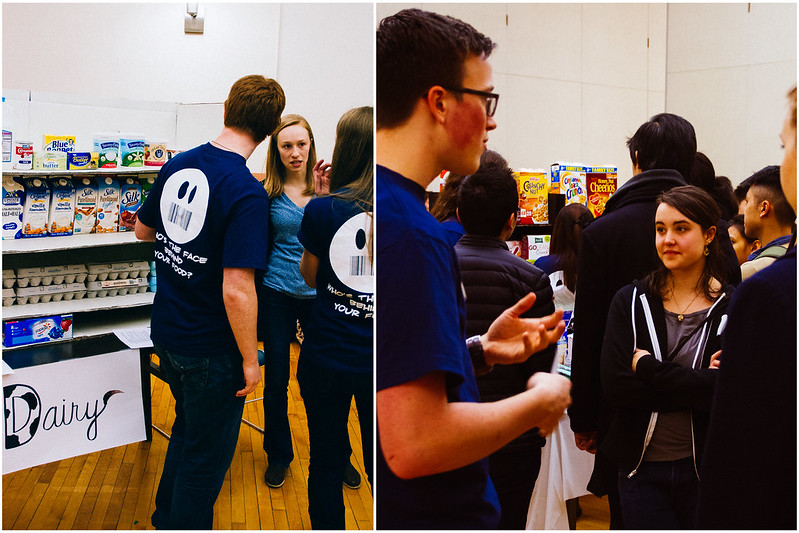Modern food production has prioritized price and quantity of food over quality and humane practice. Meat, for example, takes 20 times as much fossil fuel energy to produce than plant-based protein per calorie. Meat factories are more often feeding cows wheat, corn, animal by-products, antibiotics, and sawdust instead of grass, which can cause colonization of E. Coli in their digestive tract. In addition, Meatpacking workers in factories are often poor minorities or illegal immigrants who work in unsafe environments with unreported injuries and low pay. Our food comes at the cost of other lives and it’s time we take a stance.
Last Friday, Binghamton University’s Intervarsity Christian Fellowship held one one of its coveted event of the year called “Love Out Loud: Food Justice” to support the awareness of local, organic, and fair trade food products.
An eye-catching display of a make-believe grocery welcomed students, alumni and other guests who attended the event. Guests were given a “shopping list”, and visited each station of food to learn where and how food reaches our shelves. From baked goods to meat and dairy, Intervarsity members helped educate others about each food category and how to eat more organic, local and fair-trade.

The room resonated with passion and enthusiasm for good, wholesome food and human rights.
“I think it’s really important to be aware of how our food gets to the table. There are poverty-stricken families harvesting coffee for less than $3 a day. People shouldn’t be enslaved for our food,” said Meghana, a student attendee.
The Love Out Loud Committee wanted to raise a lasting concern and impression about what is happening in the food industry. Love Out Loud’s main goals include educating, equipping and convincing people that they may not merely be consumers, but responsible stewards for a positive change.
The event also presented to visitors various other ways to support the movement of LoGOFF food (local, green, organic, fair-trade, and slave-free). Quite a few on-campus groups and organizations popped up, such as the Food Recovery Network, SUNY Vines, Poverty Awareness Coalition and Blood:Water. Many local options for organic, local and fair trade food were present, such as the Lost Dog Café, The Whole in the Wall restaurant, Nezuntoz Café, Vestal Farmers Market and even Chipotle.
[slideshow_deploy id=’230′]




